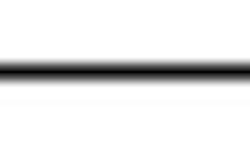March 04--MUMBAI -- JSW Steel Ltd is shifting its focus to its smaller steel plant in Maharashtra, which the company thinks is better placed to support its expansion plans, compared with its flagship plant in Karnataka, where difficulty in raw material sourcing has curtailed growth.
The 3.3 million ton (mt) Dolvi plant in the Raigad district of Maharashtra, that came to JSW Steel from its acquisition of Ispat Industries Ltd in 2010, is seeing new investments, while the main plant in the Bellary district of Karnataka, with a 10 mt capacity, is still waiting to secure raw material via acquisition of iron ore mines.
"The new mother plant will be Dolvi," said a senior executive in JSW Steel, not wanting to be named since plans have not been publicly announced. "There is a lot of activity taking place there."
A capacity addition of 1.7 mt has been planned for Dolvi, which will push up the total capacity at the plant to 5 mt. A second company official, who also did not want to be named, said the plan is likely to be implemented in the next few months.
But the company's head of strategy did not disclose the timeline.
"We will be expanding capacity of Dolvi plant in future as it a very good location for brownfield expansion. However, we have not yet decided the timelines," said Prashant Jain, head of corporate strategy and development at JSW Steel.
The second official said that JSW had made new investments for a pellet and a coke oven plant, which are in trial phase and almost ready for production. The company has also invested in using flare gas -- a by-product -- to generate 25 to 30 percent of the power required by the plant.
Other than the 1.7 mt expansion which is on the cards, there is scope for further expansion at Dolvi, which is spread across 1,200 acres, with an eye on the export markets from the port-based location, the two people said. The port, though in west India, can also ship in iron ore from Odisha on the east coast via the cheaper sea route.
Sajjan Jindal-led JSW Steel is India's third largest steel maker with a 14.3 mt capacity after Tata Steel Ltd and Steel Authority of India Ltd, yet it is considered to have the most aggressive strategy for growth.
"I won't be surprised if they work on their Dolvi expansion earlier than expected," said Rakesh Arora, managing director and head of research at Macquarie Capital Securities (India) Pvt. Ltd. "The only problem if they do it too fast is that it can make their debt rise."
The consolidated net debt of JSW Steel stood at Rs.19,899.04 crore in the fiscal year ended March 2013 compared with Rs.17,468.62 crore in the fiscal year ended March 2012.
The company's flagship Karnataka plant, set up in 1994, was rapidly expanded with modern facilities and the environmentally friendly Corex technology used for the first time in India, betting on the country's rising demand for steel, but the expansion was risky because JSW Steel did not get any captive iron ore mines.
Problems for the plant began around 2005, when China started importing large quantities of iron ore from India, including Karnataka that is the second largest iron ore producing state, to build infrastructure for the 2008 Olympics. The export of ore from India reduced the amount of raw material available for the steel plant in Karnataka.
These problems were further compounded when illegal mining and environmental issues were highlighted, which led to a ban on iron ore mining in the state from 2010 to 2012, vastly shrinking the company's iron ore supply. JSW itself has a Central Bureau of Investigation case pending against it.
Now, even though iron ore mining has restarted in a limited way, it doesn't fully meet JSW Steel's needs.
Meanwhile, the cost of importing raw material into Bellary, which does not have a port nearby unlike Dolvi, is higher, which is why the company is now betting on the Maharashtra plant.
"Very soon the company will announce a turnaround in the erstwhile Ispat Industries plant," said the first JSW Steel official, referring to an estimated Rs.9,000 crore in debt that the company took on at the time of Ispat's purchase, according to a December 2010 Bloomberg story.
Shares of JSW Steel have outperformed the S&P BSE Sensex and the S&P BSE Metal index over the past one year.
The shares ended at Rs.869.20 each on BSE on Monday, down 0.55 percent from the previous close and up 16.23 percent from a year ago. The Sensex ended at 20,946.65 points, down 0.82 percent from the previous close and up 10.72 percent from a year ago.
Copyright 2014 - Mint, New Delhi



















